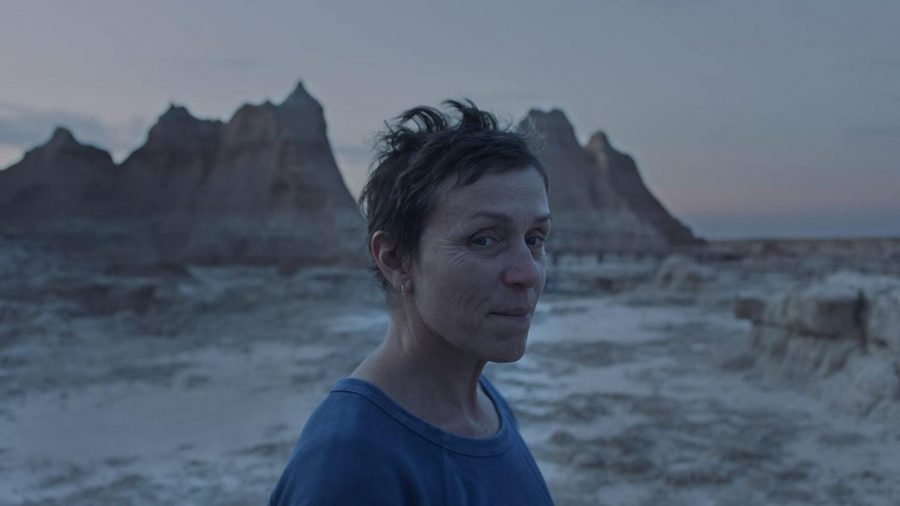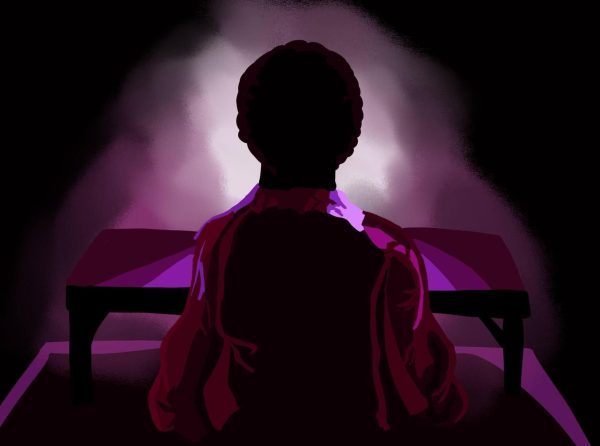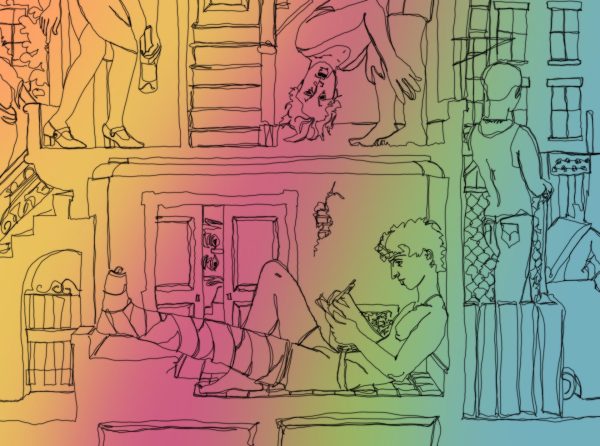REVIEW: ‘Nomadland’ is a soulful exploration of humanity
Still of Frances McDormand in Chloe Zhao’s third feature film “Nomadland.”
In 2015, Chloé Zhao launched her career with her feature debut “Songs My Brother Taught Me.” A profoundly tender and understated neo-realist portrait of life on the Pine Ridge Indian Reservation. After that came worldwide acclaim with her 2017 Cannes-debuting portrait of the modern-day cowboy, “The Rider.” A film that similarly shows a community on the outskirts of the American west with all non-professional actors.
With just those two films under her belt, it became clear to everyone in the film world that the Chinese-born director has a natural eye and an empathetic admiration for people that society often looks at as afterthoughts or merely just forgotten. Those who are never abundantly present to us but exist on the untethered margins of what we deem to be “conventional society.”
Three years after “The Rider” lended her a breakthrough to a wider audience, she has returned with another film of insurmountable beauty, capturing lives of beautiful and meditative impermanence in “Nomadland.”
The film – which has been setting the world wide film festival circuit on fire garnering the top prizes at the Venice Film Festival and the Toronto International Film Festival – stars Frances McDormand as Fern, a recent widow who, after her town succumbs to economic collapse, packs up her van and explores an unconventional life on the road amongst nomads.
Fern forms close bonds (and loses some old ones) in her new life with fellow nomads Linda May, Swankie and Bob — all played magnificently by real life nomads — and most poignantly with David (played characteristically sweet by David Stratharin), someone also choosing life on the road as opposed to confront traditional home life.
While on the outside, “Nomadland” may seem like a film that follows a familiar formula of stories about people wanting to untether from their tired surroundings, Zhao refuses to conform and lets this film bask and breathe in the vast Western spaces it exists in. It’s at once meandering and at the same time still so soulful and humbling that you feel lucky to be able to observe such painful humanity under the glow of its magic hour cinematography.
The film remains so elemental, with her camera always attuned to our character’s vast natural and unforgiving surroundings; it honestly takes your breath away. It takes a true understanding of everyday beauty to pull something like that off, and Zhao’s understanding of that is matched only by her wholehearted compassion for the working class.
With all of Zhao’s natural cinematic prowess, McDormand meets her at her level with a force of nature performance as Fern. Lending a simultaneously layered and totally stripped down performance that is commandingly tough and achingly vulnerable. It’s the performance of a lifetime.
In “Nomadland,” there is only enough room for the truth, which is why Zhao’s neo-realist style flows so seamlessly and why it’s philosophical introspections that it’s final moments leave you with feel so earned. With things remaining as uncertain as they are, it is comforting to come across a film that treats uncertainty with a bit of a sense of ease and even a splash of hope for what waits for us.
One thing is certain however, and that is “Nomadland” is one of finest cinematic achievements of this year and it’ll surely go on to collect far more golden statues ahead.
“Nomadland” screens at the Chicago International Film Festival on Oct. 24 and opens in theaters Dec. 4.















